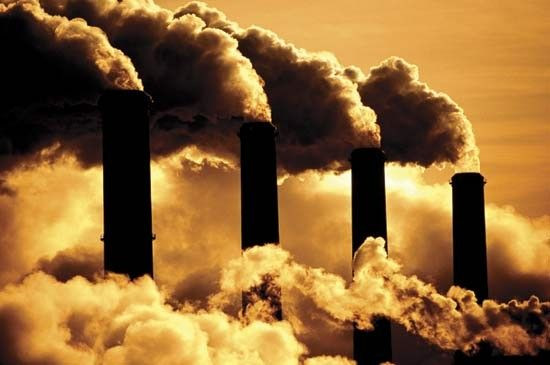Global Carbon Emissions Reach Record 10 Billion Tons: Study

Carbon dioxide emissions from the burning of fossil fuels reached 10 billion tonnes in 2010, the first time such an amount has ever been reached, according to a study published by an international team of researchers from the Tyndall Center for Climate Change Research, University of East Anglia Global.
Emissions of the greenhouse gas increased 49 percent over the last two decades, the group also concluded.
Approximately half of those emissions remained in the atmosphere, whereas ocean and land reservoirs soaked up the remaining carbon dioxide in approximately equal proportions, according to the data.
The journal Nature Climate Change published the scientific editorial Sunday.
The recent global financial crisis inspired long-term green stimulus plans from China, South Korea, the United States and others to curtail carbon dioxide output, the editorial explained. On average, fossil fuel emission rates rose 3.1 percent each year between 2000 and 2010, three times the rate of increase for the prior decade. These rates are projected to increase by another 3.1 percent in 2011.
The biggest global polluter, according to the report, was coal. Carbon dioxide emissions from oil were at 34 percent; gas and cement production comprised the rest.
Global CO2 emissions since 2000 are tracking the high end of the projections used by the Intergovernmental Panel on Climate Change, which far exceed two degrees warming by 2100, Corinne Le Quéré, co-author and director of the Tyndall Centre, said in a statement.
Meanwhile, governments have pledged to keep warming below two degrees, in order to avoid the more dangerous aspects of climate change, such as widespread water stress, a rising sea level and increases in extreme climatic events.
Annual cuts of 3 to 5 percent, instituted immediately, could lead to emissions eventually falling to zero and could, therefore, also avoid the increase in temperature, the authors suggested. However, they did also warn governments that delaying the cuts (assuming them to be around 3 percent) by even two or three decades, could drastically change the picture.
There were nearly 200 countries attending talks and meetings in South Africa, on handling the issue of climate change. Unfortunately, there seems to be little progress towards tougher steps to curb soaring carbon pollution. This suggests that the authors' concern over the reversal of a long-term trend towards improving the carbon intensity of economies between 1970 and 2000 is worth the worry.
© Copyright IBTimes 2024. All rights reserved.





















